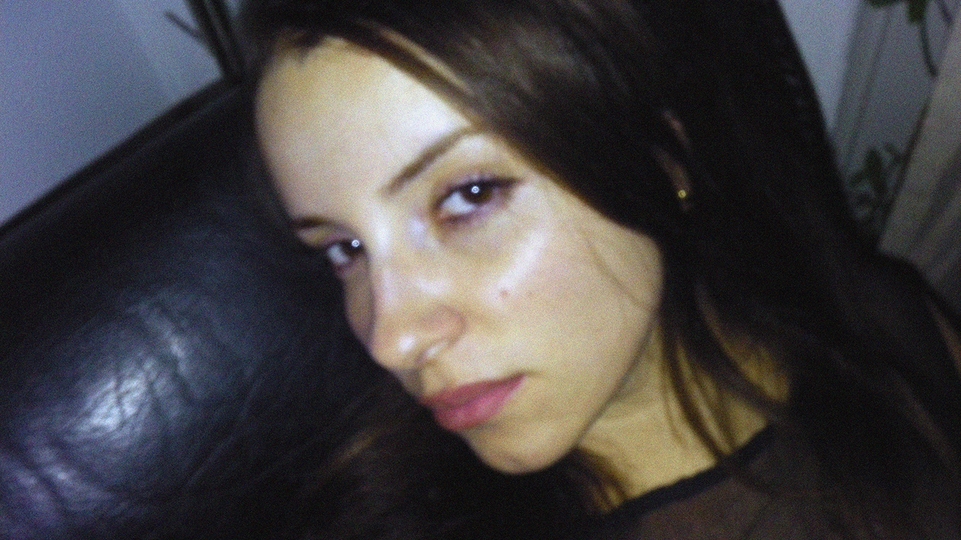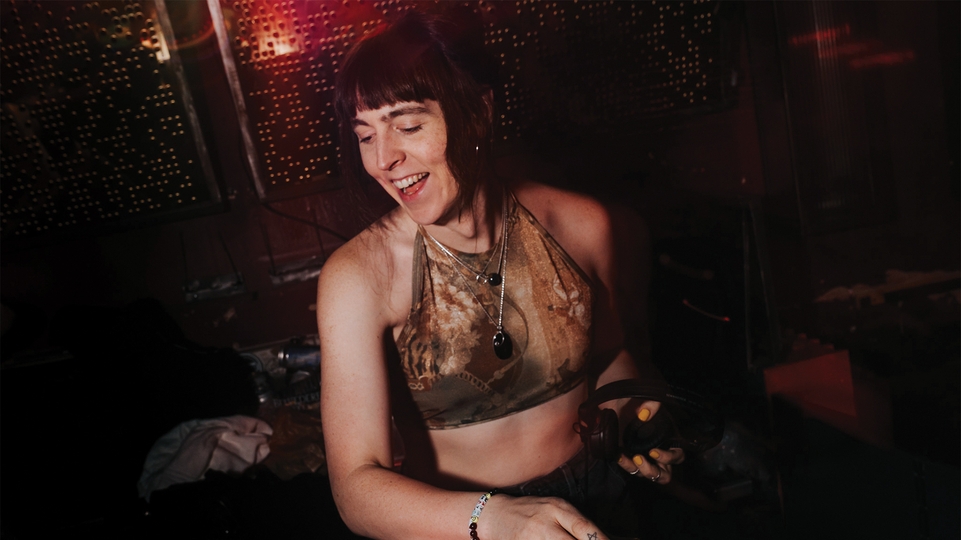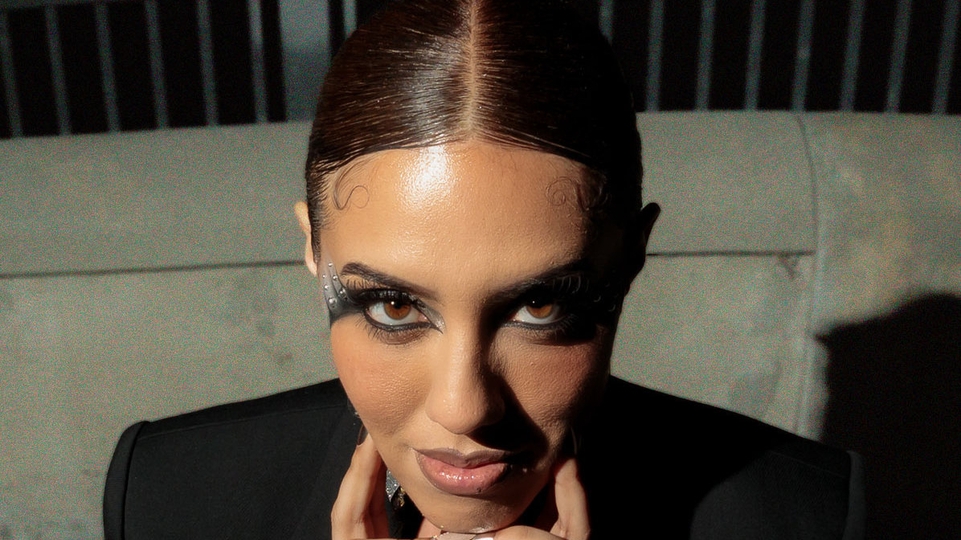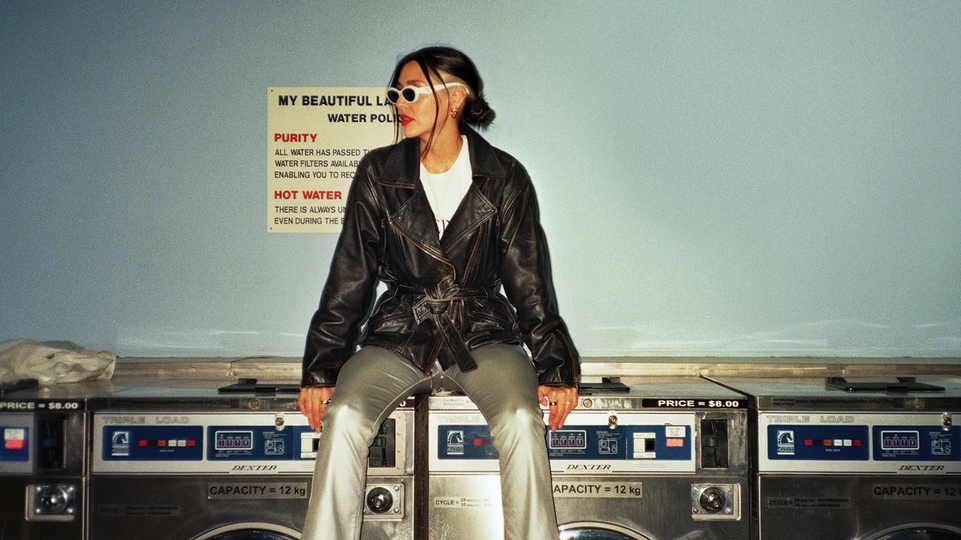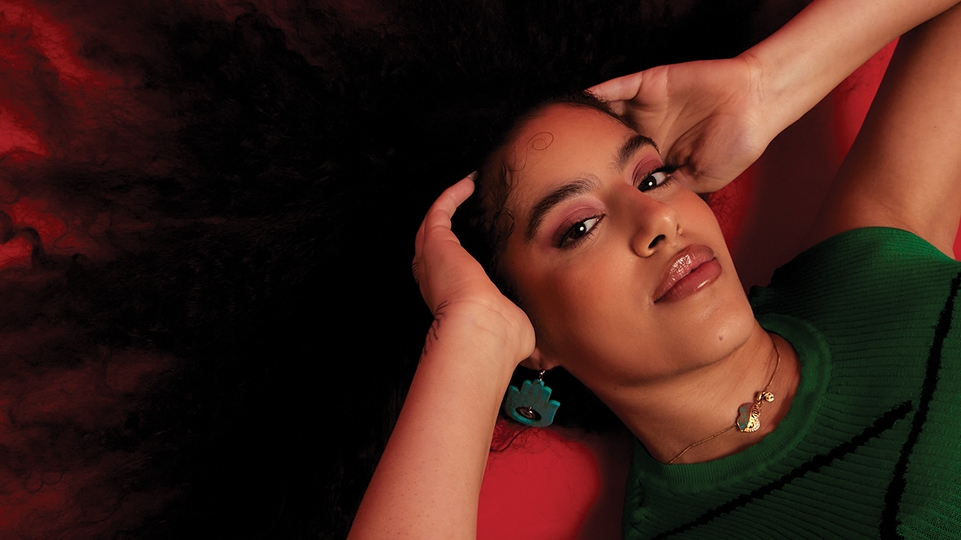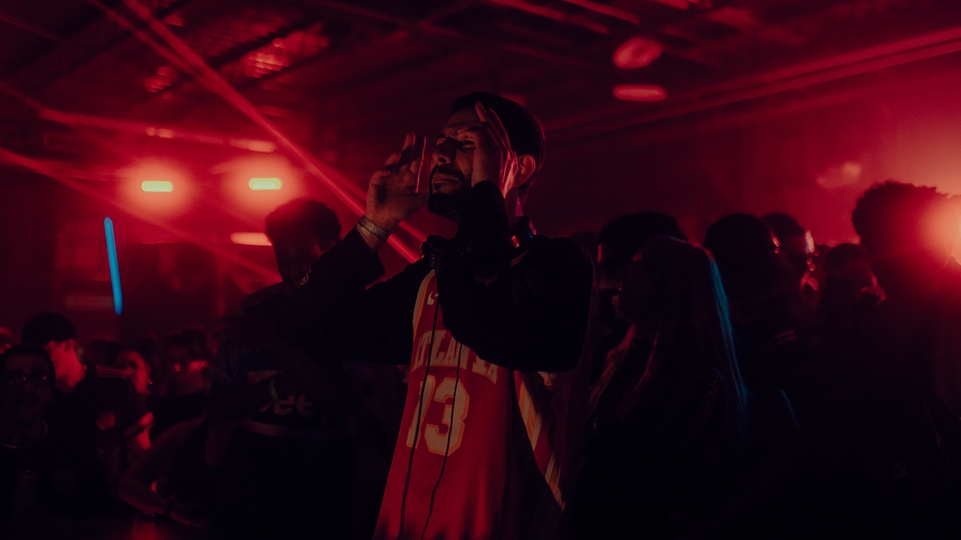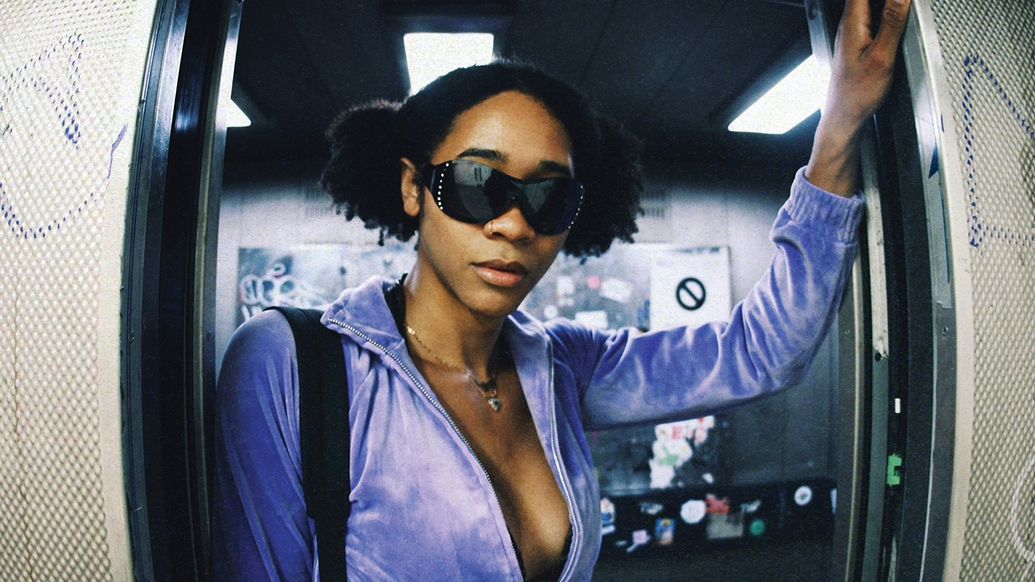
Recognise: Introspekt
Los Angeles DJ and producer Introspekt is one of the most essential and versatile artists in the modern garage scene. Alongside a blazing Recognise mix, she speaks to Oli Warwick about the sound’s queer roots, her come up in LA, and the importance of community
Sage Introspekt is fresh off tour from her first extended trip through the UK and the EU when we jump on a call. She’s stopping over in New York to catch her breath before making it back for London’s Body Movements Festival in late July, rounding off a whirlwind month which took in clubs from Hope Works in Sheffield to Fitzroy in Berlin, London’s Venue MOT to Amsterdam’s De School, and many more. Compared to the relatively early start and finish times of parties in her hometown of LA, Introspekt has had to adjust to later sets running for longer, and the creative shifts that can bring.
“I played a really great show in Barcelona with Maricas,” she beams. “It was phenomenal. I played the closing set, and by the end of it the room was still full and dancing. Coming from LA, that's unheard of. I could really let my sets roll on a bit more in Europe and go in different directions. [At Maricas] I definitely started a little bit more garage house, four-to-the-floor, and by the end of the night I was playing a lot of weirder, darker bass-heavy stuff. I was actually surprised at how into it people were.”
DJing at Maricas was significant for Introspekt; as a trans lesbian playing at a femme-centred party, she was immersed in the energy she wants to bring to the full spectrum of upfront, bassweight sounds she spins and produces. Her star has risen sharply in the past few years, and now she stands as one of the brightest lights in the new wave of artists pushing UK garage, dubstep and more on a global scale.
While she’s come through collaborating with the likes of Soul Mass Transit Soundsystem, Ollie Rant and Bored Lord, Introspekt’s sound is her own, and it’s steeped in her firm commitment to join the dots between the darker UKG sounds and the genre’s queer roots in US garage and ballroom. Listen to any Introspekt session — her production mix for NTS is a great place to start — and you’ll hear the gap closing between the different strands of garage. The gnarliest basslines rub up against iconic diva samples and the craftiest 2-step or broken beat shuffle will slip towards the pump and thrust of 4/4.
“I think there's a queer undercurrent [in garage] that's been submerged a bit,” she explains. “I'm drawing on what was already there historically; when you think about garage coming out of the Paradise Garage and Club Zanzibar, those were all queer venues in the US. The UK took that and put its own spin on it, and maybe de-queered it a bit. But even when you listen to the music, it's still, for lack of a better term, very fruity, and very feminine in some ways.”
It’s fair to say UKG’s dominant image was a predominantly straight one, of guys and girls out on the town, dressed to impress. When the genre crossed over into the mainstream with an abundance of chart-topping hits in the late ’90s, it was unsurprisingly presented through a heteronormative lens. Reflecting on her recent experience of playing in the UK, though, Introspekt was able to learn some comforting home truths about the roots of UKG.
“We think about [UK garage] as a straight scene,” she points out, “but when I was in London, I met some folks who were making this music in the ’90s who, at the time, presented as straight and lived their lives as heterosexuals, but who are now out and queer. Finding that out gave me goosebumps, for sure.”
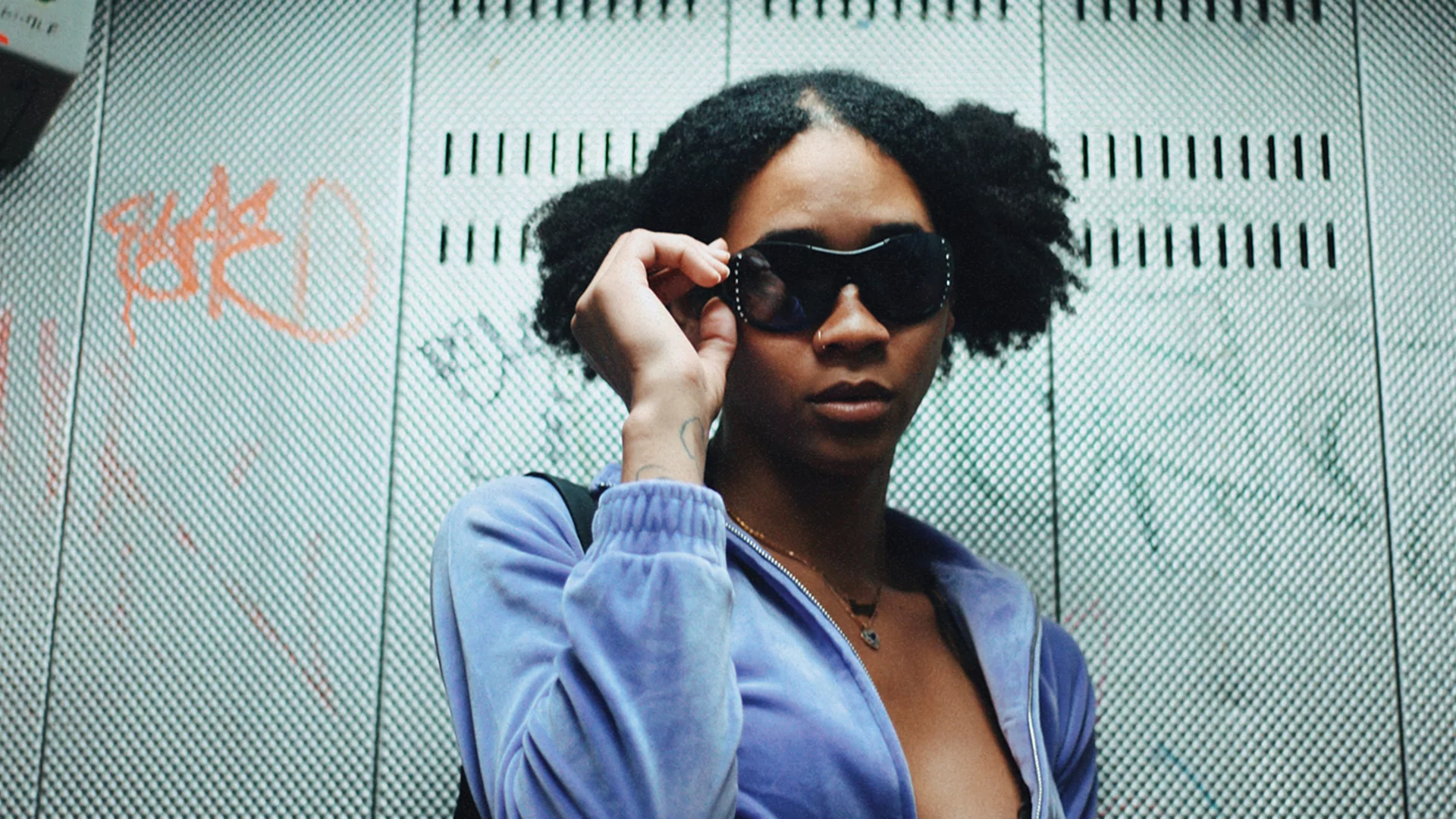
It’s no wonder this meeting of identity with music meant so much to Introspekt. When you tour through the formidable body she’s released work to date, her affinity for the music runs deep. It moves beyond simple lip-service — the samples and back references are razor-sharp, the swing is hard and the chords are cheeky as hell. She namechecks dark garage pioneer El-B as an enduring influence, but in many ways Introspekt has emerged from the dubstep boom which took place Stateside on the back of mid-range face-melters from the likes of Caspa and Rusko. As was predicted at the time, from those brash, in-your-face entry points some inquisitive minds would dig deeper and wind up forming a new generation schooled in sounds through their own YouTube and Discogs explorations.
Her first experiences of the music were solitary, but Introspekt found kindred spirits around LA’s halfstep dubstep scene and she went on to play for B-Side at Hollywood club King King in 2015, when she was 16 years old. She was kicked out after her set for being underage, but it was a formative experience as she played alongside UK dubstep artists like Dark Tantrums and Kaiju and started to connect with LA nightlife. “Catch One was another venue I played around those times,” Introspekt recalls. “I always find that to be an interesting one, because historically it's known as a queer venue. The nights we were throwing weren't necessarily queer-centred, but I like to think that foreshadows my current trajectory of bass-heavy sound system music that's intended to be primarily consumed by queer people.”
Introspekt stepped away from music for a few years, but when she started transitioning around 2019 she reconnected with her passion for UKG, igniting a new synergy between her personal evolution and the music she wanted to make and play. Finding musical community in Facebook groups like Shuffle ‘n’ Swing, her tracks got picked up on by key instigators in the recent garage revival such as Ollie Rant and Eliza Rose, who both invited her to record guest mixes for their radio shows. Community has remained a core part of Introspekt’s journey to where she is now, not least connecting with fellow West Coast resident Bored Lord and in turn Eris Drew and Octo Octa. As of this year, she’s one of the few outside artists to have released on their label T4T LUV NRG, one of the foremost platforms championing trans artists in the modern club scene.
“I've so much gratitude towards them, because they've been incredibly supportive,” Introspekt enthuses. “They’ve given me advice and they got me connected with the agent who put together my whole tour, so yeah, they definitely are a very key piece in how things are going for me right now. And I couldn't be more pleased with what the label represents, really centring trans and queer energy in this music. It's very much in line with what I'm trying to do with my take on garage.”
The support T4T has shown to Introspekt speaks to the need for trans folk to support and nurture each other, and through her ever- increasing profile she’s able to carry that support forwards, whether pushing fellow trans talent in her sets or shouting out crowdfunding campaigns for people trying to transition. She’s quick to point out her musical mission isn’t trying to represent all trans and queer folk as one homogenised community, but fundamentally, and with devastatingly effective, inventive club music at its core, it is about bringing up her community, whoever that might encompass.
“It's not something I'm directly involved with,” she muses, “but I always think about how the ballroom community infrastructure formed to fill in for what we weren't getting from general society. I think that kind of community building is very important, and it's really at the centre of what I want to do. Early on in my transition I had a lot of the community support me, so it's important to me that I return the favour.”
